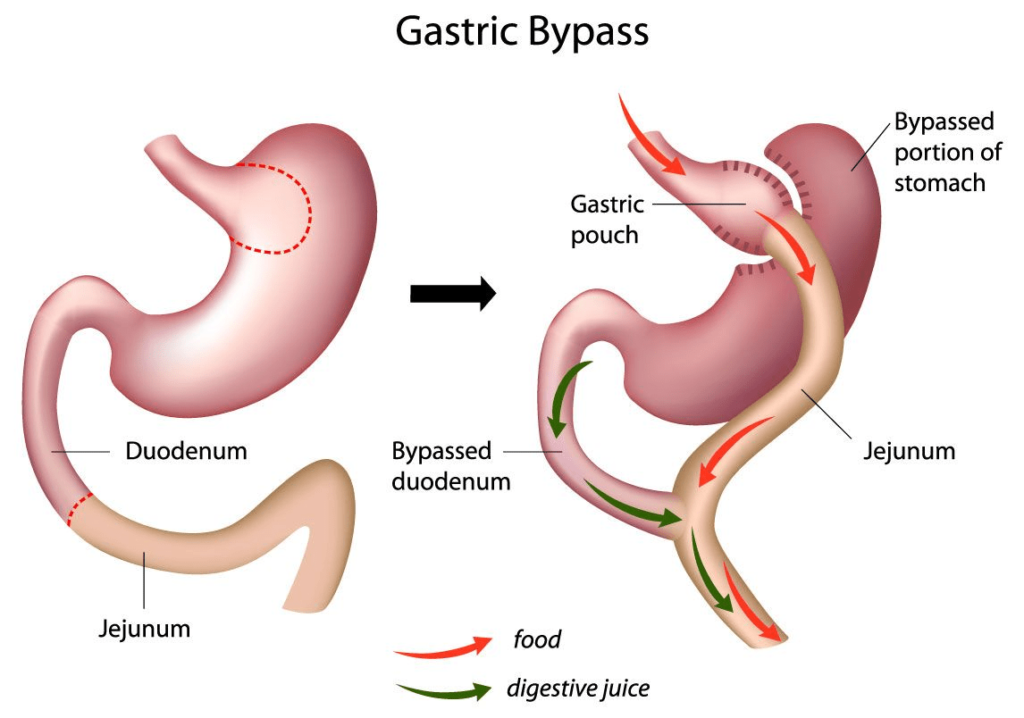


Revisional bariatric surgery in Brooklyn, NY
Bariatric surgery is one of the most effective tools we have in the battle against obesity. When combined with changes to habits, diet, and exercise, it can help even those with morbid obesity reach a healthy BMI and reduce the effect of or fully eliminate certain co-morbidities.
With that said, there are cases where bariatric surgery doesn’t work the first time around. When this happens, bariatric revision should be considered. Here is what patients should know about the possibility of needing a second bariatric surgery.
Only a small number of people who get bariatric surgery in Brooklyn, NY Weight Loss Clinic end up needing a revision. Out of those who do, the majority require it not because something went wrong with the surgery itself, but because they did not do their part to enhance and maintain their results. Sometimes, the patient maintains their lifestyle changes for a few months, or even a year, then slips back into their old patterns. In other cases, they stop following the suggested diet as soon as they are healed.
How does revision surgery after primary bariatric consultation work?
For patients who had complications of primary surgery this will depend on the severity and the time period from the primary procedure.
Common gastric band problems that need revisional surgery will be:
Slippage
Erosion
Infection
Port site problems.
Almost always these will need elective revision surgery.

GASTRIC SLEEVE REVISION SURGERY
If you previously had gastric sleeve surgery and require a revision it can be performed through a technique called endoscopic sleeve gastroplasty (ESG). This procedure is performed endoscopically accessing the stomach via the throat and is an outpatient procedure. The gastric sleeve revision is done through sutures that reduce the stomach size without having to use incisions or requiring a hospital stay.
GASTRIC BYPASS REVISION SURGERY
If you have previously undergone gastric bypass surgery and require a revision the procedure is called a transoral gastric outlet reduction (TORe) and is used to repair or reconfigure the connection that links the stomach and small bowel.
Sometimes the surgeon can insert some sutures into the gastric outlet using an endoscope using zero incisions. After these stitches have been put in, patients get full faster so they stop eating and lose weight. A gastric bypass revision performed endoscopically is an outpatient procedure and individuals can go home the same day with a fairly short recovery time.

Revision weight loss surgery is not for everyone and the risks and benefits should be thoroughly discussed with your surgeon.
The decision to undergo revision weight loss surgery is a major decision as it is considered a riskier surgery than first time weight loss surgery. Since every patient is unique, you will need to talk to your surgeon about options available for your particular situation based on your previous surgery and the options available for revision.
Here we answer some frequently asked questions about revisional bariatric surgery:
Am I a Candidate for Revisional Bariatric Surgery?
You may qualify for revisional weight loss surgery if your original bariatric procedure did not result in optimal weight loss, or if you’ve regained a significant amount of your excess body weight. Regaining a small amount of weight is common after all bariatric surgeries.
What Results Can I Expect After a Revisional Procedure?
Results from revisional bariatric surgery vary, but weight loss is generally less substantial than after your original procedure.
Your results also depend on your original bariatric procedure. Many patients who initially had a lap band can expect significant weight loss after a conversion to Roux-en-Y gastric bypass.
What are the Risks of Revisional Procedures?
Revisional weight loss surgery is more complex and has a higher risk for complications than an initial bariatric procedure. However, it is a safe and effective choice when performed by experienced bariatric surgeons, such as those at Goal BMI Clinic
.
What is Your Policy if Another Surgeon Performed my Original Bariatric Surgery?
Goal BMI Bariatric Clinic often work with patients who had their first bariatric surgery performed elsewhere.

Our Philosophy Is Providing Surgical Excellence By Combining Cutting Edge Technology And Individualized Patient Care. A Few Of The Most Commonly Performed Procedures Include Laparoscopic Gastric Banding, Laparoscopic Sleeve Gastrectomy, Laparoscopic Gallbladder Surgery, And Laparoscopic Hernia Repair.

